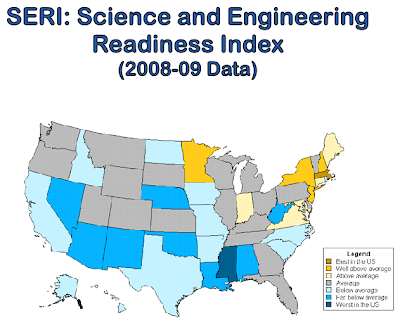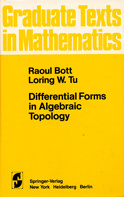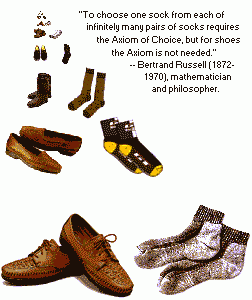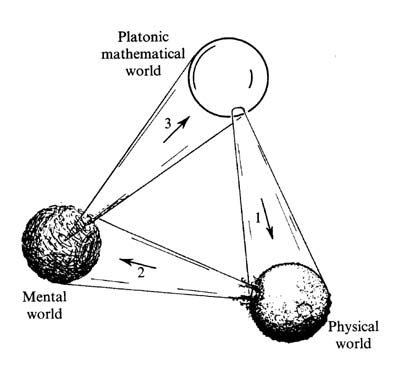I have been rereading certain sections of The Road To Reality by the famous mathematical physicist Roger Penrose as he touches on many things near and dear to my heart. One of these things is whether there is a real existence of objective truth independent of human minds. Penrose seems to argue such objective frameworks probably do exist and uses math as an example. He also admits by analogous reasoning one may argue an objective morality or aesthetics beyond the minds of men may also exist but in this book he is only concerned with the math. Now to quote Penrose:
Platonic existence, as I see it, refers to the existence of an objective external standard that is not dependent upon our individual opinions nor upon our particular culture. Such 'existence' could also refer to things other than mathematics, such as to morality or aesthetics, but I am here concerned just with mathematical objectivity, which seems to be a much clearer issue...
Plato himself would have insisted that there are two other fundamental absolute ideals, namely that of the Beautiful and that of the Good. I am not at all adverse to admitting the existence of such ideals, and to allowing the Platonic world to be extended so as to contain absolutes of this nature.
And now for his reasoning about math. Though he can't prove it, he seems to believe that belief in a real objective mathematics independent of man is necessary in order to trust it and make progress. And because the robustness of math transcends the notorious untrustworthiness of human minds, it seems to have a reality that goes beyond it's creation coming from the minds of men:
Yet, there is something important to be gained in regarding mathematical structures as having a reality of their own. For our individual minds are notoriously imprecise, unreliable, and inconsistent in their judgements. The precision, reliability, and consistency that are required by our scientific theories demand something beyond any one of our individual (untrustworthy) minds. In mathematics, we find a far greater robustness than can be located in any particular mind. Does this not point to something outside ourselves, with a reality that lies beyond what each individual can achieve?...
He then says a typical critique is that math is just a product of human minds but has these amazing properties because it has been distilled down over years to those human ideas that can consistently be shown to be true by all. He then says this line of reasoning is circular because for everyone to agree that something is right requires an external standard. (Leading us back to an external objective existence.) He then says:
Mathematics itself indeed seems to have a robustness that goes far beyond what any individual mathematician is capable of perceiving. Those who work in this subject, whether they are actively engaged in mathematical research or just using results that have been obtained by others, usually feel that they are merely explorers in a world that lies far beyond themselves--a world which possesses an objectivity that transcends mere opinion, be that opinion their own or the surmise of others, no matter how expert those others might be.
He then decides to illustrate how we might expect history to be different if math was subjective. Fermat's last theorem was proposed as being true 350 years before it was proven. If the theorem was subjective and culturally relativistic, then over 350 years with so many cultures contemplating the idea, surely a counterexample may have been constructed. Back to Penrose:
Let me illustrate this issue by considering one famous example of a mathematical truth, and relate it to the question of 'objectivity'. In 1637, Pierre de Fermat made his famous assertion now known as 'Fermat's Last Theorem.'... Fermat's mathematical assertion remained unconfirmed for over 350 years, despite concerted efforts by numerous outstanding mathematicians. A proof was finally published in 1995...
Now, do we take the view that Fermat's assertion was always true, long before Fermat actually made it, or is its validity a purely cultural matter, dependent upon whatever might be the subjective standards of the community of human mathematicians? Let us try to suppose that the validity of the Fermat assertion is in fact a subjective matter. Then it would not be an absurdity for some other mathematician X to have come up with an actual and specific counter-example to the Fermat assertion, so long as X had done this before the date of 1995...
I think that virtually all mathematicians, irrespective of their professed attitudes to 'Platonism', would regard such possibilities as patently absurd.
In conclusion: Just because humans discovered something, like math, doesn't mean they invented its objective reality. Belief in such an objective existence independent of the minds of men leads one to be able to "feel that they are merely explorers in a world that lies far beyond themselves--a world which possesses an objectivity that transcends mere opinion." A world, as Penrose describes later, that seems to transcend time and this mortal sphere as it seems to be vastly larger then what is needed to describe this physical world and in fact would be largely unknown if we tried to limit math to that which does seem applicable to this mortal sphere. And as Penrose alludes to in the first quote, if the existence of an objective mathematics beyond the minds of men actually exists, what what other such objective frameworks my exist in reality? I will let the readers decide for themselves but the possibility of exploring such timeless and objective "worlds that [lie] beyond ourselves" to me is fascinating.




























